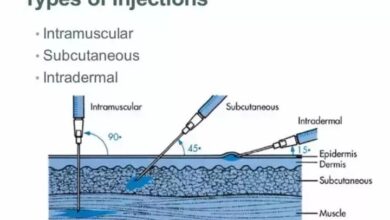What Is Drug Safety Studies?

Drug safety studies are clinical and non clinical research carried out for the purpose of evaluating the potential for adverse effects related to the administration of drugs. It involves efforts to establish the safety profile of drugs including the use of in vitro and in vivo toxicity testing, and continue through clinical trials leading up to drug approval.
Drug safety studies may also include pharmacokinetics, acute toxicity, repeat dose toxicity, genotoxicity, carcinogenesis, tumorigenicity, and developmental and reproductive toxicology testing. Drugs are typically brought to market based on the results of randomized clinical trials (RCTs). In their simplest construction, 1 group of patients receives the new drug while another receives something else—usually placebo or another therapy. If the 2 groups of patients are similar at baseline, any differences in outcome (positive or negative) can be reasonably attributed to the drug being tested.
One of the places you can find up to date research information on drug safety is the Drug Safety Journal the premier international journal covering the disciplines of pharmacovigilance, pharmacoepidemiology, benefit-risk assessment, risk management and medication error prevention, Drug Safety advances the rational use of pharmacotherapy by publishing reviews and original research articles offering guidance for safe and effective drug utilization and prescribing.
Importance of Drug Safety Studies
Clinical trials are designed to test hypotheses that are the agreed-on bases for determining efficacy. Trials designed to test hypotheses about serious safety outcomes would in most cases require many more subjects than are needed for an efficacy endpoint. For some conditions, the efficacy outcomes may be surrogate endpoints, which are expected to capture the information about efficacy but are usually not informative about safety.
Safety information can emerge from clinical trials, but rare events may not surface at all; if they do, it is at a rate so low that one cannot distinguish a drug-caused event from one expected by chance (background incidence). Safety information is usually limited to reports of common adverse events, the relation of which drug exposure can be assessed by comparing rates between study treatment groups, or adverse events already predicted by results of animal studies or in connection with other drugs in the same class. Safety information also includes abnormalities in clinical laboratory test values seen during preapproval trials that may portend occasional clinically significant events. That set of suspected adverse events serves as a starting point for decisions about post market surveillance and drug safety research. The safety profile of a new molecular entity (NME) is especially uncertain, because of a lack of information on similar drugs already on the market.
Often, a drug that is efficacious in clinical trials is not very effective in actual use. For example, a drug may have high efficacy in lowering blood pressure but may have low effectiveness because it causes so many adverse effects that patients stop taking it. Effectiveness also may be lower than efficacy if clinicians inadvertently prescribe the drug inappropriately (eg, giving a fibrinolytic drug to a patient thought to have an ischemic stroke, but who had an unrecognized cerebral hemorrhage on CT scan). Thus, effectiveness tends to be lower than efficacy.
In general, drug safety studies provide insights on how a drug is likely to affect people when used, it helps to determine which adverse events cross the line of a drug’s efficacy. In other words, analyzing which side effects are worth the risk to patients compared with how effective they are at treating a disease. For instance, chemotherapy is known to cause some very serious side effects but when faced with life-threatening cancer, these side effects are considered acceptable given the potential to cure a patient. However, if a drug used to cure a headache caused similar side effects, the risk to the patient would be considered too great and the benefit not substantial enough to justify the potential damage.





